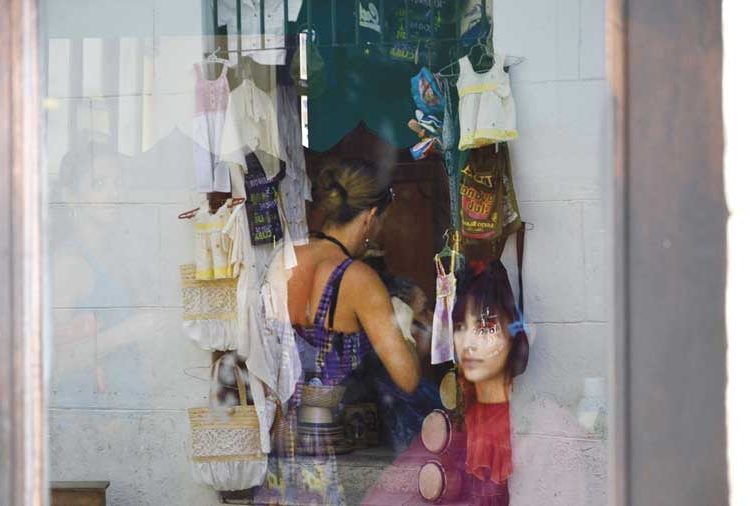Photos: Darío Leyva
The government’s new policy for promoting small private businesses island-wide has triggered an avalanche of initiatives. Many people have fixed up their homes to coexist with their own businesses. Doorways, terraces, garages and even interior rooms are being converted daily into retail spaces that have become the mainstays of some families’ finances, to a good extent. However, many of these businesses have failed for lack of a strategically-placed locale.
Now, a pilot program is underway in Habana Vieja (Old Havana), which, if successful, could be expanded to other parts of the city and other cities: eight retail spaces have been rented to house different types of businesses.
According to Eusebio Leal, “the City Historian’s Office (Oficina del Historiador de la Ciudad – OHC) received approval to conduct an experiment with eight small locales that did not belong to the Habaguanex company or to any other business entity in Havana’s historic quarter; small spaces, which, fixed up with the cooperation of their tenants, have served as a model for an experience that is being analyzed pending a law or regulations to be issued appropriately by the government.”
A hair salon, massage and spa business; two ornamental plant stores that also sell bonsai trees; a shop that raises and sells pet birds; an arts-and-crafts and design store/café; the restaurant Mama Inés, specializing in Cuban food, and the bar/restaurant Las Cuatro Estaciones.
These examples are in sync with the development policy that the OHC has been implementing for almost two decades. Conceptually, the management model that has been applied since 1993 in Havana’s historic quarter views culture as the center of development, combining a focus on economic profitability with recovery.
With that in mind, Leal said, “We are also striving for these spaces to serve as an example for motivating other types of initiatives, ones that are less popular today, which will help to beautify our city and at the same time be viable.”
The tenants of these spaces are still investing resources to develop their businesses, but they all agree that their profitability is a fact. “With the wonderful location that we have, these spaces will grow very rapidly.”
Easing private work is one of the decisions that Cuba has made as part of redesigning its economic policies to increase production and efficiency. Today, more than 280,000 examples of this small private sector are operating on the island. However, there are still many aspects to be explored. The rental initiative that is operating on an experimental basis in Habana Vieja could open the door to improving the updating of the Cuban economic model.










